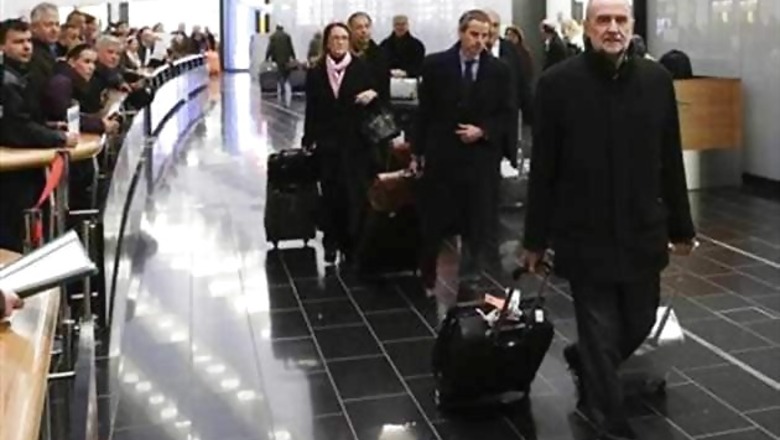
views
The international chemical weapons watchdog will be meeting on Thursday to discuss slow progress in its mission to destroy Syria's poison gas and nerve agent program by the end of June.
In a note prepared last week for the behind-closed-doors meeting of the executive council of the Organisation for the Prohibition of Chemical Weapons, Director-General Ahmet Uzumcu says he spoke to UN Secretary-General Ban Ki-moon "and they both agreed that it was necessary for the removal process to pick up pace."
Under a timeline drawn up last year, the most toxic chemicals in Syria's 1,300-metric-ton stockpile were to have been removed from the country by December 31, but that deadline was missed due to poor security in war-torn Syria and other factors.
So far, just two small consignments of chemicals have been shipped out. One of the shipments came after Uzumcu's note was written.
Uzumcu said in the note that Syria had informed him of "certain security threats," but insists it is committed to removing the chemicals "as soon as possible." He did not elaborate on the nature of the threats
An American ship, the MV Cape Ray, is on its way to the Mediterranean Sea to pick up the most toxic chemicals in Syria's stockpile, including mustard gas and raw materials for making sarin nerve agent.
The Cape Ray is equipped with two machines called Field Deployable Hydrolysis Systems that will mix the Syrian chemicals with water and a cocktail of other chemicals in a titanium reactor to render them inert.
Danish and Norwegian cargo ships are picking up the Syrian chemicals from Latakia port and will transfer them to the Cape Ray in the Italian port of Gioia Tauro.
The OPCW is examining tenders from 14 private commercial chemical destruction companies bidding to eliminate less-toxic Syrian chemicals and waste generated by the Cape Ray. Germany also has said it will incinerate 370 tons of waste created when the Cape Ray neutralises Syrian mustard gas.


















Comments
0 comment